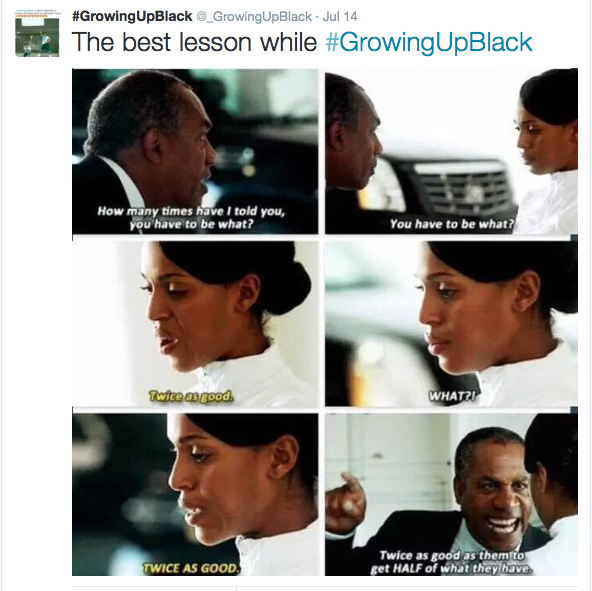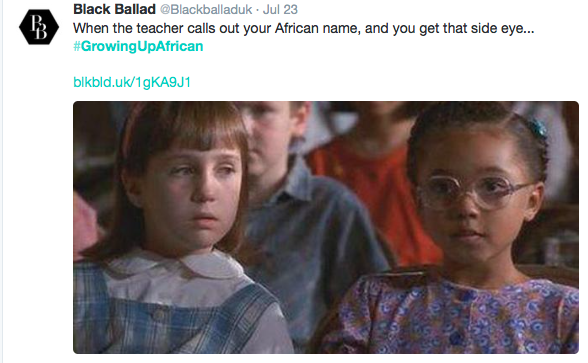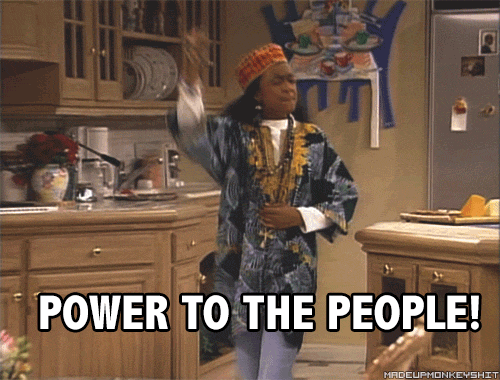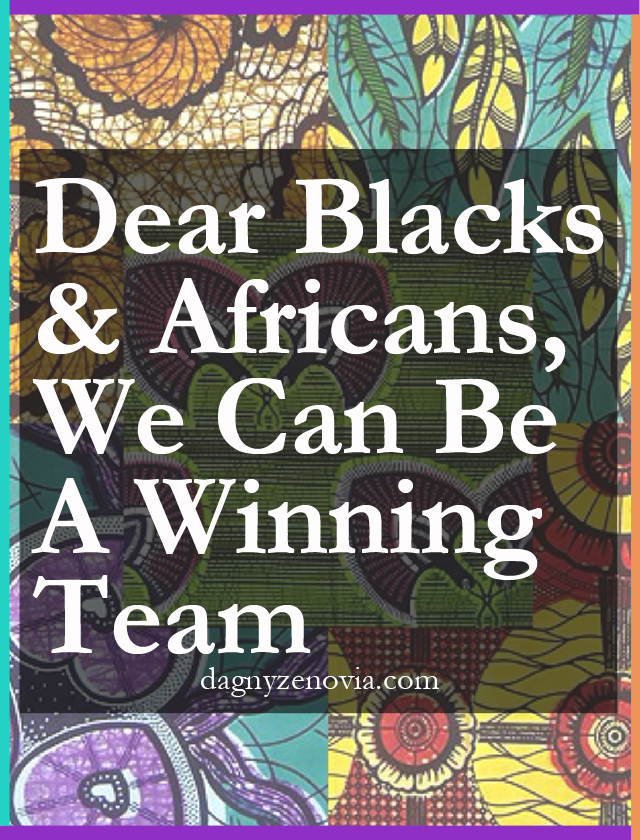Are Blacks and Africans really that different? Are they really that similar? Recently the debate (and slight tension) between these questions were brought up again with various twitter chats, articles, and documentaries. I agree everyone is entitled to their own opinion on this, but an informed perspective can make a world of a difference. To contribute to the conversation, I want to share my response to these questions and some resources for you to explore later.
The Constant Comparison Between Blacks and Africans
Whenever Blacks and Africans are compared to each other, a negative connotation is usually attached. Take for instance The Economist article “Building Afroamerica” that speaks to the fact that African immigrants are the fastest growing group in the American immigrant population and could possibly change what it means to be “African-American.” Noting the trajectory of African immigrants who relocate to the USA, they tend to live in the suburbs, are well educated, and “will succeed nonetheless because their education and motivation will allow them to climb into the middle class.”
This story features statistics and other quotes to enhance its credibility, which is all fine. However, was it really necessary to add this – “African migrants stand out from American-born blacks. Indeed, on most measures, they have little in common but their colour.” The article proceeds to subtly slight Blacks by giving the impression they are less educated, primarily younger, and less likely to live in the suburbs. These back-handed comments did not enhance the story but rather left a bad after taste. There is no need to dig a deeper division between Blacks and Africans. There is so much both groups can help and learn from each other. Why give the impression there is some competition to be the real MVP African-American? Do we see any articles comparing American-born Mexicans, Chinese, or Italians with recent immigrants from their respective countries? Are they pitted against each other to never solidify their community? No. Alas, their history is not as complex, tragic, and excellent as ours. So this team is more special and should be handled with care.
I would like to propose that there are more similarities between Blacks and Africans then we are comfortable to admit. For example, a few months ago two hilarious twitter hashtags took place: #growingupblack and #growingupafrican. I’m not sure which one started first, but scrolling through the responses, it was self-evident that both groups have a similar sense of humor when they describe the challenges and fond memories of growing up.
The strive for excellence…


The unique names…


The family responsibilities…
The methods of parenting…


We share similar struggles in aspiring for success and equipping our children with the tools and the strength to survive a world that does not support them. In spite of these challenges, we always save room for laughter. We enjoyed our upbringing and would not have it any other way.
If you are interested in learning more about what connects Blacks and Africans, I highly recommend you view the documentary “Bound: Africans vs African-Americans” by Peres Owino (which is now available on Amazon and iTunes). I attended a screening for it earlier this year and met the director, who is just brilliant. She incorporates history, candid interviews, and storytelling to strip away myths that surround the tensions and barriers between Blacks and Africans.
It Is Not Appropriation. It Is A Celebration.

I am sure you have come across the article “Black America, Please Stop Appropriating African Clothing and Tribal Marks” by now. The responses vary from complete support, disagreement, or just unsure. The author claims that the people pictured attending this years AfroPunk Festival were appropriating African culture as a trendy style. She further tries to compare this with the appropriation Blacks complain about when non-Blacks wear Black culture as a trendy style.
Blacks are not appropriating African culture. When Blacks speak against appropriation, they are referring to the historical and continued practice of non-Blacks in the USA using their style, culture, and ideas for profit without giving credit where it is due and intentionally skewing praise away from Blacks who are being themselves towards non-Blacks who are wearing Blackness as a trendy style. When Blacks dress to attend AfroPunk or incorporate motifs from different African countries in their style, they are paying homage to their royal ancestors. It is a sign of respect to wear African fabric, tribal markings, and cultural jewelry. It is used to create an independent connection to the continent their roots are from.
I was discussing this topic with my family the other day and they offered a brilliant comparison. When non-Japanese people get tattoos with Japanese characters, does it degrade or dilute Japanese culture? Is that trend ever referred to as appropriation? No. In fact, Japanese character tattoos and Afrocentric style are examples of globalization. It is the result of having increased access to cultures and people. This is exactly why I feel that the amazing and creative styles that were showcased at AfroPunk this year were not appropriation, but a celebration of culture, people, and black excellence.
Now that I have shared my opinion, you might be wondering where the source of my perspective comes from. My family is from Ghana, Liberia, and Switzerland. I was born in the USA and have lived here all my life. Thus, I am considered a first-generation, diasporan, and/or afropolitan. I like to think of these titles as part of a third group of people that have the insight and experience to bridge the gap between Blacks and Africans. We also tend to love discussing identity because we constantly have to define our own since it was not pre-packaged. I understand the challenges Blacks and Africans experience individually and collectively and see why both groups do not always agree. However, I also see the amazing potential Blacks and Africans could achieve as a winning team. Together our strength, resilience, creativity, and innovation are incomparable. We have been conditioned to never see value in ourselves and to throw shade before praise at anyone who looks like us. Hopefully with the help of globalization and the access to discuss these topics, others will be empowered to remove this padlock from their minds.
What do you think about the relations between Blacks and Africans? Do you think globalization is helping or hindering the connections between us?




Leave a comment